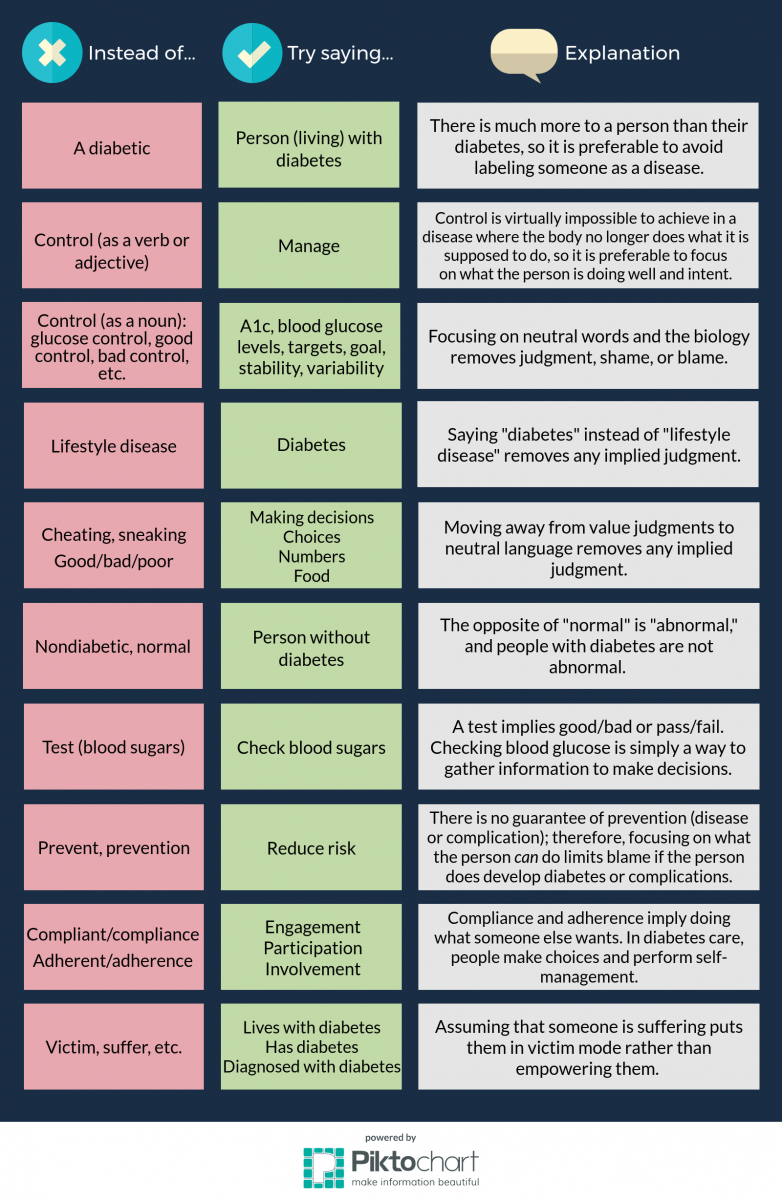Diabetes Language Recommendations: How To Avoid Judgment and Stigma
By Emma Ryan
 By Emma Ryan
By Emma Ryan
ADA and AADE publish guidelines for healthcare professionals on word choices that empower people with diabetes
Last month, the American Diabetes Association (ADA) and American Association of Diabetes Educators (AADE) released new recommendations to improve communication in diabetes care and education. The report focuses on giving healthcare providers options for neutral, nonjudgmental language that empowers people with diabetes through language.
For word choice examples and explanations, see the informative chart below. For instance, the authors recommend using “person with diabetes” instead of “diabetic,” using “manage” instead of “control,” and using “check” blood sugar instead of “test.” (This Adam’s Corner discusses the latter in more detail.)
Though not all people with diabetes feel strongly about the language that their healthcare providers, friends, and family use, others may be offended or affected in subtle ways. Common phrases have the power to unconsciously affect attitudes and behaviors.

Using language that contributes to diabetes stigma (red column above), for example, might negatively impact a person’s mental and physical wellbeing – particularly because many people with diabetes already suffer from depression. One study found that people who experience health-related stigma were less likely to seek follow-up care. Stigma-producing language can also make people feel like they’ve failed – e.g., words like “control” and “test.” Research also links diabetes stigma to higher A1c levels and more blood sugar variability, as well as increased stress. Positive and helpful language can simply help make life easier for people with diabetes face.
The report recommends using language that:
-
Is neutral and based on facts and actions
-
Is free from stigma
-
Is based on a person’s strengths, is respectful, and provides hope
-
Fosters a collaboration between a person and their healthcare provider
-
Is centered on the person’s individual goals and needs for their diabetes care
The report recommends avoiding language that:
-
Labels a person as his or her condition
-
Is judgmental
-
Suggests helplessness
-
Implies a lack of effort or motivation
Of course, this is intended as a guide, since people with diabetes have different reactions to certain terms – if you are unsure about which word a person prefers, you can always ask.
Read the ADA/AADE announcement here or see the full paper here. You can also review diaTribe’s previous list of suggested language.
[image credits: AADE]







